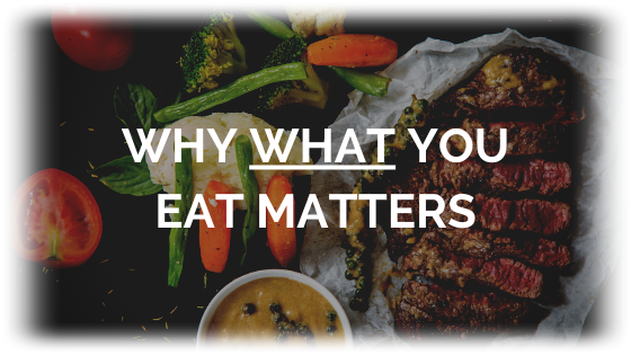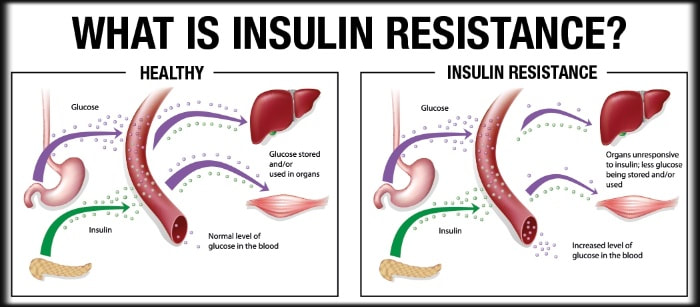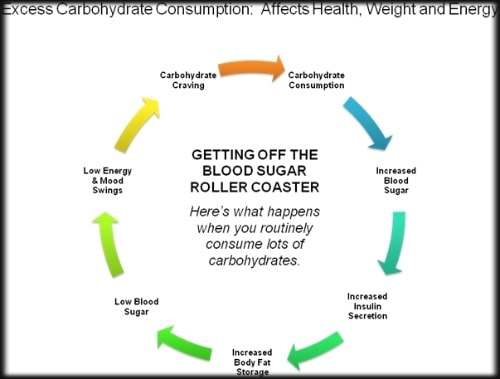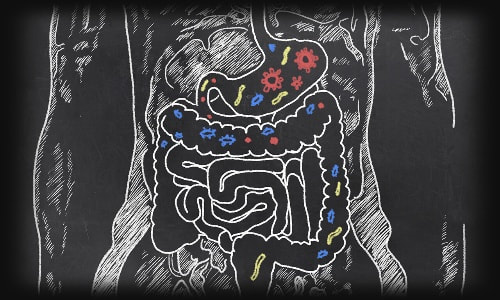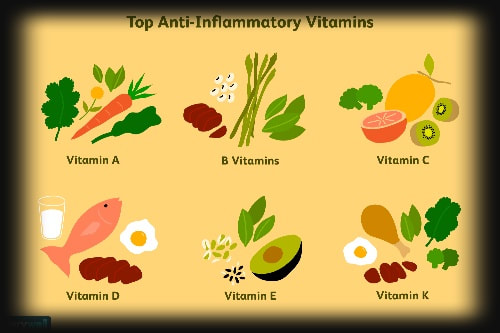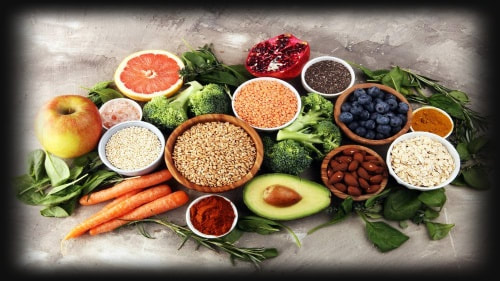|
It's a collective human tendency to search for simple answers to our often complex problems. Therefore, it's unsurprising that public attention has been highly drawn towards calories. The energy balance is a simple & intuitive model to understand; consume more calories than you burn-off and you gain weight - that’s how it works right? Yes and no. Whilst the fundamental principle is grounded in logic, it’s unfortunately not that black & white. Neither improved health or fat-loss are solely contingent on calorie management. Turns out, it's not just how much you eat that matters; what you choose to consume is a vital part of the equation, for several reasons. Let’s delve into 4 reasons why our nutritional approach (how we fuel our bodies) is crucially important for optimal health & fat-loss. Hormonal Health.Hormones are essentially the body’s chemical messengers. They are secreted into the blood, which takes them to their target receptors, located on organs & tissues throughout the body. These regulate how our body functions, our physiology & our behaviour. Hormonal fluctuations & changes are influenced by several factors - and diet is one of them. Take type 2 diabetes for instance. The issue at hand is one of under-production of insulin - a hormone with the responsibility of storing glucose into the body’s muscle, liver, and fat cells. Type 2 diabetes is the result of a few factors, but one of the key drivers is nutrition. Whenever we consume carbohydrates or protein, they're broken down & enter the bloodstream as glucose (sugar). To prevent blood glucose levels becoming dangerously high, insulin production is triggered, causing the glucose to be stored in the body's cells. The primary sites of glucose storage are muscle & liver cells, but once these stores reach capacity the body resorts to storing any excess glucose as fat. The management of insulin levels is therefore key - if we have chronically high insulin along with excess glucose intake, our body will store more & more of it as fat. Here's where diet becomes central. If we consume excessive amounts of foods that rapidly spike blood glucose (refined carbohydrates), elevated insulin production occurs. Not only will this facilitate the increased storage of fat, but also, with time, will lead to the development of insulin resistance; a state whereby the body’s cells no longer respond to the action of insulin; they refuse to uptake glucose from the blood. Muscle & liver cells become insulin resistant first, leaving fat cells as the only storage site. Without intervention, fat cells too become resistant, leading to elevated blood glucose levels, progressively causing type 2 diabetes. This whole cycle of disease begins with the food we decide to fuel our body with. If, instead of eating refined carbohydrates and processed foods we opt for real, fibrous, nutritionally dense foods, blood glucose & therefore insulin levels will remain in-check. Resultantly, insulin resistance, obesity, type 2 diabetes & the host of other diseases are less likely to arise. Insulin is just one example of several hormones that are intimately linked with dietary intake & have direct consequences on how our body functions, how we feel, and our health. Gut Health.The gut microbiome is essentially the trillions of bacteria that reside within your intestinal tract. These microorganisms are involved in several functions critical to our health & wellbeing - absorption of nutrients, metabolism, body weight, immune health, brain function, mood, just to name a few. There are several factors that influence the type & amount of bacteria we host within our gut, but in recent years it has become increasingly evident that our diet is one of the most significant & modifiable factors available. What comprises an ideal microbiome remains unclear and varies from individual-to-individual, however it’s widely accepted that having a diverse range of bacteria is advantageous & that there are certain bacteria that are beneficial to have. When our gut is healthy, we feel more energetic, are less susceptible to illness & disease, experience greater mental clarity, & maintain better emotional well-being. By contrast, when our gut is imbalanced & poorly cared for, we find ourselves more prone to autoimmune disease, bodily inflammation, diabetes, cognitive disease, as well as an increased propensity for anxiety and depression. One of the key reasons why a healthy gut is so central health is that it permits proper digestion & absorption of necessary nutrients. For example, tryptophan - an amino-acid essential for the production of serotonin & melatonin. Serotonin is a neurotransmitter often nicknamed the happy chemical - it’s involved in the regulation of mood, cognition among other things. Meanwhile, melatonin is a hormone highly necessary for optimal sleep quality - and you should know by now the importance of sleep for weight loss. It’s clear then, that maintaining a healthy, well-balanced gut microbiome is highly favourable. Fortunately, there are several gut-health enhancing behaviours that have been well researched, here are a few:
Energy.Ever experienced that post-meal crash - you could easily fall asleep right there at your desk? Well, nutrition plays an important role in that. This again comes down to blood glucose levels. If we consume foods that cause sudden rapid spikes in blood glucose - refined carbohydrates are the culprit here, yet again - then delayed lethargy is the natural result. The sudden blood glucose spike may well cause an immediate burst in energy, however the spike is soon followed by a big drop. Once this drop hits, tiredness is the natural outcome. How do we combat this? Proper fueling. Consume foods that don't lead to such drastic spikes in blood glucose - but instead provide a low-to moderate & more sustained increased. This will ensure that energy levels remain more stable. So what should we consume to help keep blood glucose levels & therefore energy levels stable? Well, fortunately there’s a tool for that. Commonly eaten carbohydrate sources have been ranked according to their glycemic index (GI) - the extent to which they raise blood glucose levels after eating. Foods with a high GI are typically more refined carbohydrates - those which can be rapidly digested, absorbed & metabolized by the body. Low GI carbohydrates - vegetables predominantly - produce smaller rises in blood glucose & therefore insulin. So keep your blood glucose & therefore insulin levels in check by predominantly consuming foods with low glycemic indices. Micronutrition.Finally, how we fuel our body is vitally important from a micro-nutritional content perspective - the vitamins & minerals that we require for optimal functioning & good health. Vitamins are organic chemical compounds that we either don’t make enough of or at all within the body - therefore we need to derive from our food. In total there are 13 different vitamins, some fat-soluble, some water-soluble. As we're able to store the fat-soluble vitamins, our chances of becoming deficient in them are slim - provided our nutrition is on-point. On the other hand, water-soluble vitamins require continued replacing as they cannot be stored in the body & are excreted via urine. Vitamins are vital for several physiological functions including:
For example, Vitamin A is highly important for eye health, immune health, & is necessary for a healthy pregnancy. It’s derived from both plant & animal sources, such as leafy green vegetables, salmon, and whole milk. Vitamin D is another one widely talked about - particularly with regards to Coronavirus. It plays a key role in maintaining bone health, as well as preventing all sorts of disease, including heart disease, some cancers, and multiple sclerosis. It’s a hormone produced naturally by the body through sun exposure, but can also be derived from food, fatty fish in particular. Minerals are chemical elements that also need to be assimilated from the diet. They also play a role in several key processes:
Just to name a few. Both vitamins and minerals are attained via a natural and varied diet - eating real, minimally processed, whole foods. If we instead opt to maintain a diet high in processed foods with very little nutritional content, our body becomes deprived of the necessary compounds for optimal functioning, disease prevention, & good health. References: https://www.bluezones.com/2019/04/6-ways-to-improve-gut-health/ http://www.well-well-well.co.uk/balance-your-hormones-with-the-right-diet https://foodandmoodcentre.com.au/2016/07/what-is-the-gut-microbiome/ Valdes Ana M, Walter Jens, Segal Eran, Spector Tim D. Role of the gut microbiota in nutrition and health BMJ 2018 |
Author
Christian Lawal Personal Training.
Personal training in Tunbridge Wells, Tonbridge & Sevenoaks. Archives
January 2024
|
